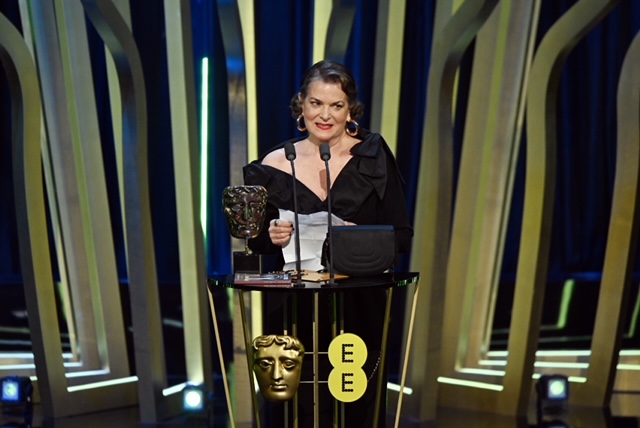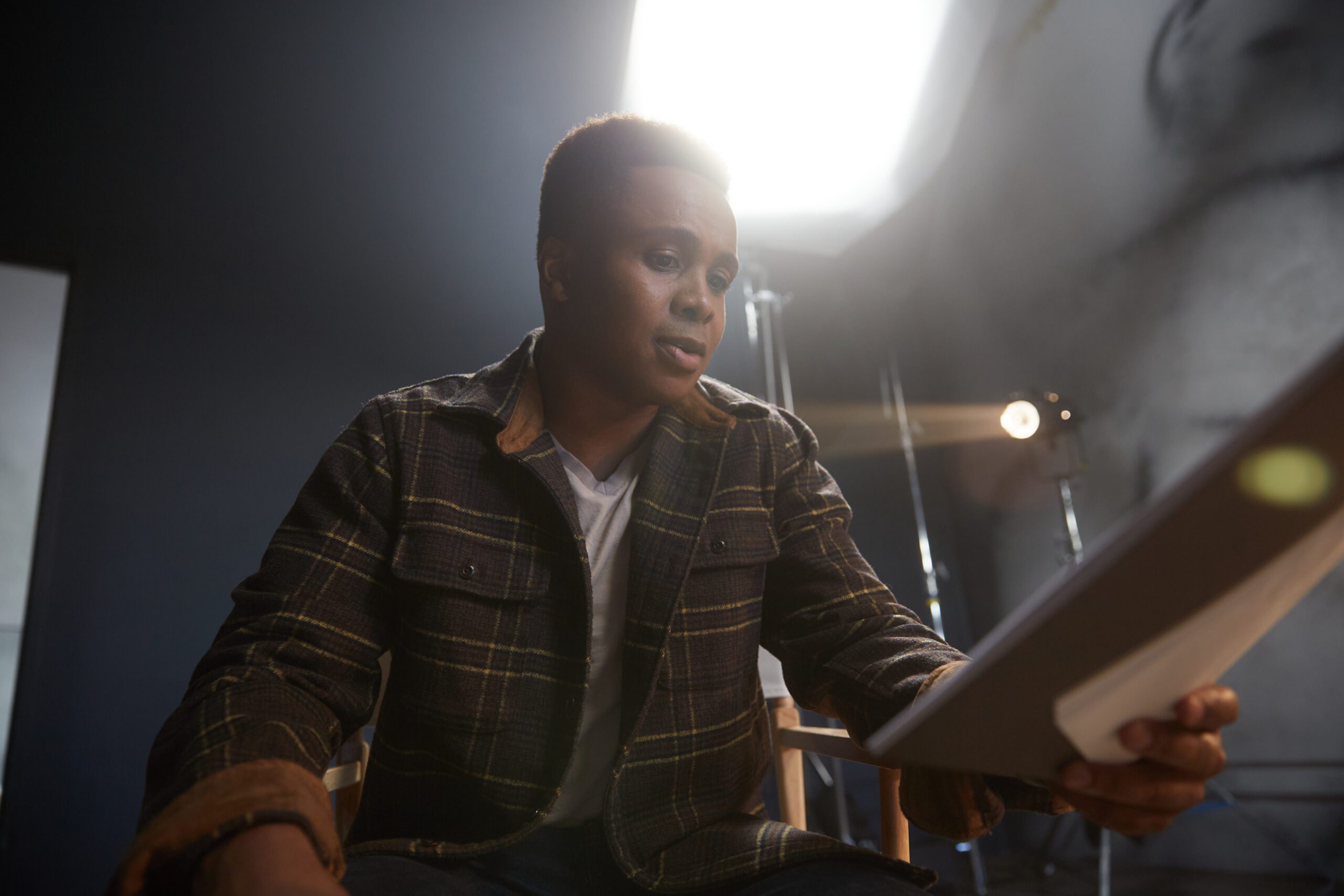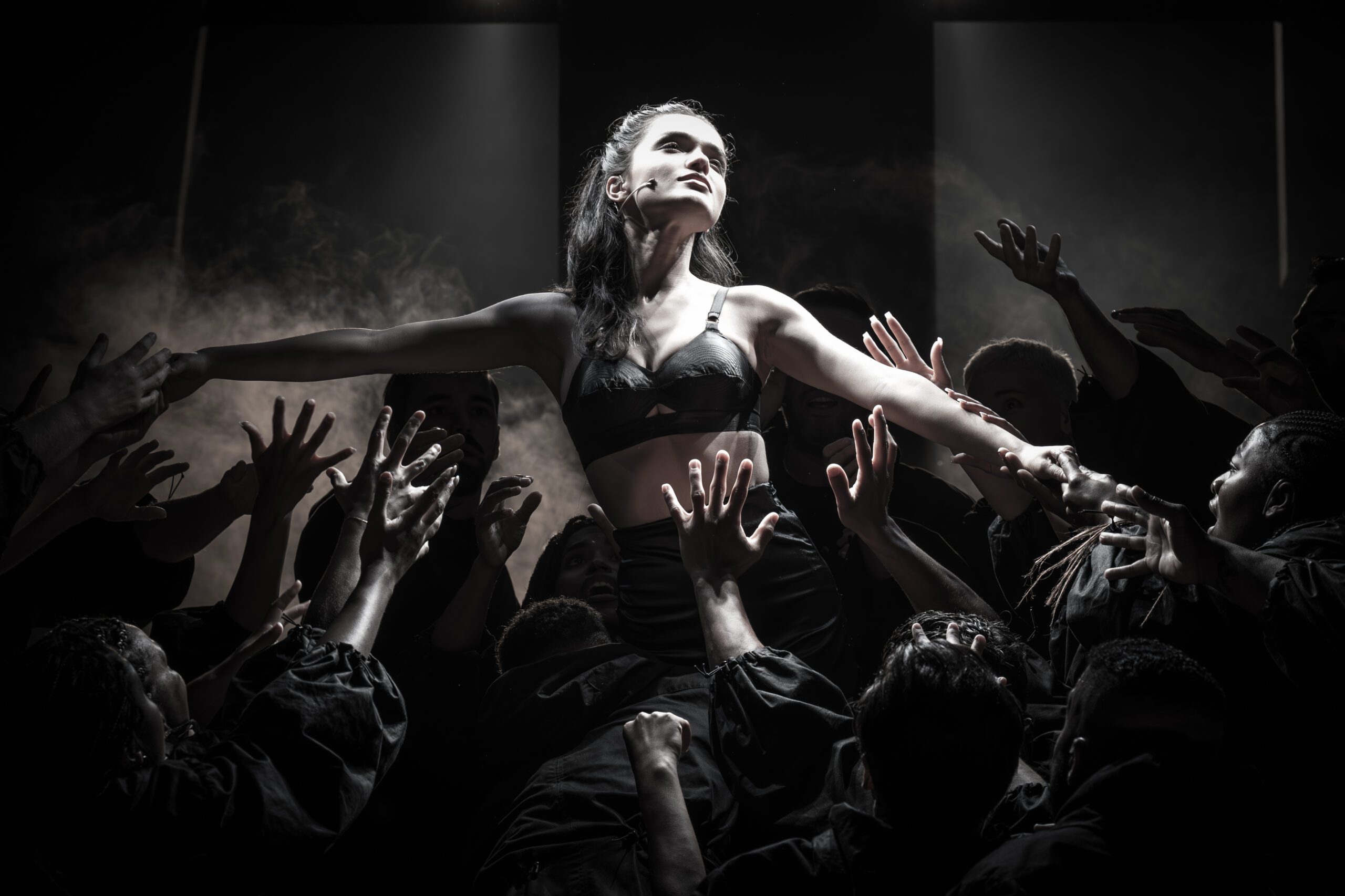US casting director Susan Shopmaker talks casting ‘The Holdovers’ and ‘The Iron Claw’, how commercial casting differs from film and how to get cast in US-based productions.
Susan Shopmaker’s casting career spans decades. With over 30 years’ experience casting for feature films, as well as plenty of credits in commercials, she is one of the most respected casting directors in independent film and has been behind the incredible casts of Hedwig and the Angry Inch, First Reformed, Sound of Metal, Martha Marcy May Marlene, The Nest and more. She also worked on Disney’s Enchanted, The Holiday and Something’s Gotta Give as the New York casting director.
Recently, Susan won an Artios Award for Outstanding Achievement in Casting – Comedy and a BAFTA for Best Casting for The Holdovers and was nominated for another Artios Award for The Iron Claw.
We had the chance to ask Susan about the casting behind these fantastic films, plus the other highlights of her career, her advice for performers and how commercial and film castings differ. Here’s what she shared:
Hi Susan! How did you first get started in casting?
I just fell into it. I really just got plunked down into the middle of it and did it in stops and starts for a few years before it became a consistent thing. Certainly, when I was younger, becoming a casting director was not even a thing, and it certainly had never crossed my mind, so here I am, all these years later.
I had gone to college for painting and drama, but that was it.
What makes a performer stand out to you in auditions and self-tapes?
I think seeing an actor who’s made choices and who’s grounded in the space that they’re in is helpful when watching a self-tape. Also, again, back to making real choices, so that they are a character, but they are a conduit for the character.
In a room, it’s a very different thing. I keep saying this over and over, but in a room, you literally watch someone walk into a room. You watch someone open a door, you watch them sit down, and a lot is gleaned from being with an actor. You’re still looking for the same thing – a good performance – but there are lots of other things that come into it. Again, you can meet an actor and they’re not right for what you’re doing, but they’re right for something else. Always, I would say an actor should be prepared and, in their shoes, as it were.
It’s watching them be themselves, actually, so not being the character as much as just being themselves. You get a lot from speaking with actors. What kind of energy they have and the energy they have may not be right for the role that you’re casting, but their energy is right for something else. That does happen probably more often than people think with casting directors.
You’ve just recently won a BAFTA for ‘The Holdovers’ for Best Casting. How did you first become involved in the casting for this film?
They contacted me out of the blue. It was all a bit fuzzy and weird and I certainly had no idea it was coming down. I interviewed via Zoom, and then I met Alexander (Payne) in person after that, and I got the part as casting director.
Could you tell us about the casting process for ‘The Holdovers’?
We had Paul Giamatti, and I have said this several times: once you have Paul Giamatti, you know what has to happen next. It has to be a cast of actors who can hold their own with Paul and be as textured in how they act.
The biggest challenge was always going to be ‘Angus’. We saw lots and lots, hundreds and hundreds and hundreds of Angus’ through self-tapes and some Zooming. Then, ultimately, I was sent during COVID in a car to boarding schools in Massachusetts, New Hampshire, maybe Connecticut. I can’t even remember, but I had to go to schools and charm my way in and meet students – I think most of who didn’t even know what they were auditioning for.
In some cases, they weren’t kids who wanted to be actors. They were like, “Oh, I have an opportunity.” The schools that let us in were very supportive towards their students. They were just like, “Yeah, go try it.” That’s what we did.
We actually put out the role of ‘Angus’ [on Spotlight] in England. I think at one point we were just like, “Let’s get it out there everywhere.” But we had to reel it back because he had to have an American accent, for which we saw quite a few kids through Spotlight.
Then, certainly, with the adult roles, there were a lot of auditions. Nobody was going to get a role in this unless they read. We auditioned every last person, and we came up with this cast.
Were there any memorable moments during the audition process?
All the memorable moments are when you think, “Oh my God, I have it. I’m done.” That was certainly a memorable moment.
Working with Alexander in the room was very memorable. It was during COVID and I had given up my office, so he would just come over to mine and we would watch tapes together and talk. It was a bit cosy, but it worked.
Obviously, travelling at that time, being allowed to go into schools and meeting kids from all over was memorable. I think I knew it was going to be Dominic (Sessa) when I met him, but it took some time to get there. I remember meeting Dominic.
How did it feel to be recognised with a BAFTA win?
It felt wonderful, but I think it feels wonderful for all of us, if that makes any sense. I think casting directors have gone a long time really without any recognition. If something goes well in a movie, the directors generally get all the kudos and if something goes wrong, it comes back to us. A lot of us work really hard on all kinds of budgets. I think what we do does have an impact on a film.
While it felt great, like I said, it was an out-of-body experience. I don’t really remember feeling anything. I had no shoes on, and apparently, I had just broken a rib, which I did not know at the time. I was a mess. I was up there with a broken rib and no shoes.
I feel like I speak for everyone. It’s just great to have been recognised at all, to have been invited to the party.
‘The Iron Claw’ is another fantastic project you’ve worked on. Can you tell us about the casting process for this film?
Sean (Durkin) and I have worked together since he was about 18. I met him when he was in college, and I cast his college movie. He was an undergrad. Then, from that, we went on to do a thing called Martha Marcy May Marlene and then we went on to do The Nest and now we ended up here.
During the course of all that, I cast one of his friend’s first films, and in that was Jeremy Allen White. Then I cast another film that had Harris Dickinson in. In some ways, it was a bit of a homecoming for several people because Jeremy has known Sean since Jeremy was about 14. I had not been officially hired, but once Zac (Efron) came on board, we understood, again, how you have to cast around him to be mindful that it was a family and taking some liberties.
Stanley Simons, who’s the youngest brother, was somebody who we had cast in his first couple of things. That’s the role we auditioned for the most, and I think it was fairly obvious, right after his first audition, that it was going to be him. Sean always wanted Holt (McCallany), so we went out there and got Holt to play ‘Fritz’.
You also won an Artios award for ‘Memory’ for Feature Low-Budget Comedy or Drama. How does a production’s budget affect your casting process?
It depends on the director. You’re just not paying people a lot of money and it’s a little bitter – are you in or are you out?
Michel (Franco) is a very particular kind of director and you either understand his movies or you don’t. Michel is somebody who doesn’t want a lot of recognisable faces in his movies. Weirdly, I think at this point he could get them, but he’s very conscious of staying away from lots and lots of people who are stars or big names.
The process for that was similar. We auditioned people. Jessica (Chastain) came with it. That was quite amazing – kudos to her! Peter (Sarsgaard) came on board. Michel met with Peter and he liked Peter. That felt like it was the right choice. Then, the rest of it was a couple of meetings and auditions.
How do you decide which projects to take on?
For me, it’s usually the text and, obviously, it’s people. If it’s a director with whom I’ve worked, if they come back to me, I’m always going to say yes. It just doesn’t even matter. For other things, it’s really about the material.
As I like to say, I’ve made my bed and now I’m having to sleep in it. For a long, long time, I made my living doing lots of commercials. I don’t think a lot of people knew it, but I had a nice office and I had space and so I was able to take movies that I wanted to take. The career has been shaped probably by my own taste, and that’s probably not the best thing in some ways, but I continue to work that way and I do turn things down. It isn’t always about money. It’s about all kinds of other things.
What advice do you have for non-US actors hoping to get cast in US-based productions?
It’s the same advice for anybody. Be there when the opportunity arrives and do the best you can.
A lot of times we ask you to do American accents and so many of you do them flawlessly. Listen, there are all kinds of roles in the world. I work in all kinds of things. It isn’t always about an educated actor; it isn’t always about an actor who’s had a lot of training. But I think if a British actor is going to come into the American world and not be British or wherever they happen to be from, then training is it, because that’s where you learn how to do this flawless accent.
I don’t know how they do it, but they do it. I’m in awe. More and more, I’m in awe because now that we can do this, I see more, I meet more or I watch more auditions.
We just did hire someone from England and they got her the visa that she needed. Seat of their pants, but she got it, and she was here and she shot and went home, but she was playing a Brit. She did a great audition. That’s how she got the part.
How does commercial casting differ from film and TV casting?
It’s not that different from television. The little bit of television I did, it was like, “Oh, thank god I used to do commercials.” Because it’s very fast, it’s quite chaotic, it all happens at once.
You have to have everything in by yesterday. You learn how to see actors one after the other, somehow make them feel welcome and get what you need in five or 10 minutes. It’s a tremendous amount of work, it’s a lot of volume and it’s exhausting. That’s the difference.
In film, you have the freedom to be creative and to think, “Oh, this person might be right for the role, even though they’re nothing like what the director sees.” You can think, you can go a little zen. In commercials, there’s no zen.
What is your number one piece of advice for actors?
Everything you do as an actor leads you towards something, either the next part or an agent or whatever it is that you’re out there trying to get. It’s corny, but you eat an apple and you throw the apple seed behind you and you eat another apple and you throw it and one day, you look behind you and there’s an orchard and that is your career. That is how it works.
I’m a perfect example. I’m not a kid. I didn’t start five years ago. You just keep doing it. As long as you want to do it and it’s the only thing that you see yourself doing, you just keep doing it. You just keep moving forward.
You look behind you one day and you’re like, “Oh my God, I did all that? Now I’m here.”
Finally, what would be your dream project to work on?
God, I don’t know. I probably already had it. It was probably The Holdovers. I think more movies, more things that are character-based that allow me to take my time, so that I can get a great cast. I would love more of those. It doesn’t always work out that way, but that’s what I would love.
Thank you, Susan, for sharing your casting experience and advice with us! The Holdovers and The Iron Claw are available to watch in the UK through Amazon Prime Video.
Take a look at our website for more interviews and advice from casting directors.



















